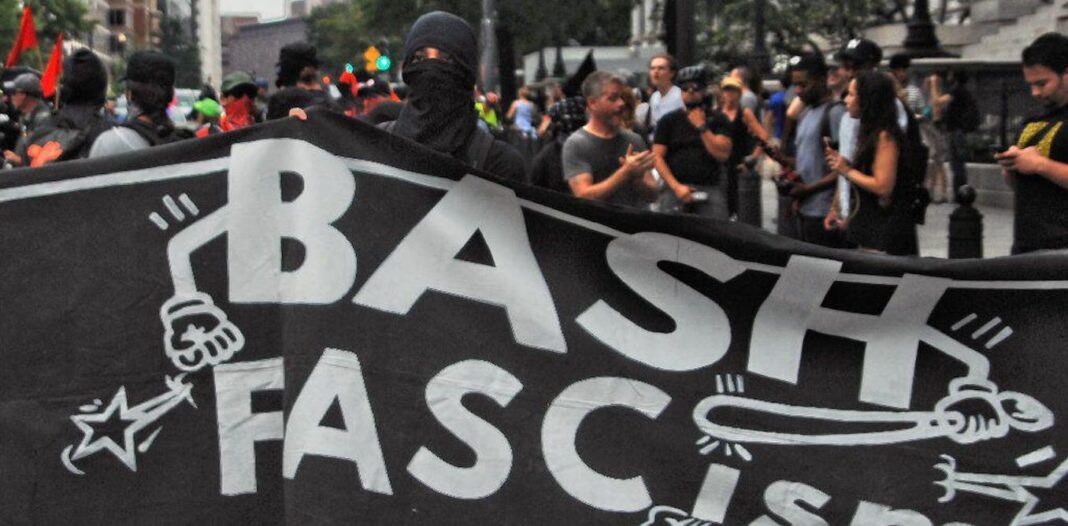Rising Tensions: Trump’s Targeting of Antifa After Charlie Kirk’s Shooting
Following the shocking shooting of his political ally, conservative commentator Charlie Kirk, on September 10, former President Donald Trump has signaled a determination to pursue his ideological enemies, whom he labels the “radical left.” As the U.S. grapples with the aftermath of this violence, the political rhetoric surrounding the antifa movement—a decentralized collective viewed as a stark opponent of far-right ideologies—has intensified considerably. Trump’s announcement to designate antifa as a terrorist organization raises questions about its constitutional implications and the potential for a significant power shift in American law enforcement.
The Context of Kirk’s Assassination
Kirk, a far-right activist and founder of Turning Point USA, had positioned himself as a prominent figure within conservative circles. His assassination triggered an outpouring of grief and outrage from Trump and his supporters, and the president swiftly took to social media to emphasize a more aggressive stance against what he characterized as anti-American extremist groups. His declaration of antifa as a “SICK, DANGEROUS, RADICAL LEFT DISASTER” wasn’t merely a emotional response; it marked a decisive pivot in Trump’s political strategy.
Antifa: A Broad Ideology, Not a Defined Organization
Trump’s portrayal of antifa as a singular, organized group grossly oversimplifies the reality of the movement. Antifa is shorthand for “anti-fascist” and comprises a loose collection of individuals and groups united in opposition to fascism and far-right extremism. Without a centralized leadership or defined hierarchy, it resembles more of an ideology than a traditional organization. Historian Mark Bray likens it to feminism, noting that while there are feminist groups, feminism itself is a broad concept with diverse expressions.
Legal and Constitutional Challenges
The notion of designating antifa as a terrorist organization could face significant legal and constitutional challenges. Under existing law, there is no established legal framework for designating domestic groups as terrorist entities. Previous calls by Trump in 2020 to label antifa as such stemmed from his frustration with the nationwide protests following George Floyd’s death, yet the legal implications remained murky at best.
In addition, First Amendment protections pose a formidable barrier to any attempts at punitive measures against individuals associated with antifa. As David Schanzer, director of the Triangle Center on Terrorism and Homeland Security, pointed out, the government cannot penalize individuals merely for their association with a group.
Potential Applications of RICO Laws
Trump’s administration has hinted at employing the Racketeer Influenced and Corrupt Organizations (RICO) Act to combat antifa. Originally intended to dismantle organized crime, RICO has been utilized in various contexts since its inception under President Richard Nixon in 1970. If antifa were successfully classified as a criminal enterprise, the government might seek to target individuals involved in a range of illegal activities under its umbrella. However, such actions would likely encounter significant resistance in courts, further complicating the already contentious legal landscape.
Increased Surveillance and Federal Intervention
Labeling antifa as a terrorist organization could lead to a regime of heightened surveillance and federal intervention, particularly in Democratic strongholds where local authorities might remain cautious about acting against left-leaning demonstrators. The implications are troubling: federal agencies like the FBI and Department of Homeland Security could assume control over local investigations, overriding state laws and authority.
This potential power grab is not without historical precedent. The government’s previous attempts at monitoring and disrupting leftist movements through programs like Cointelpro during the 1960s serve as a cautionary tale about the dangers of excessive surveillance and executive overreach.
The Role of the Insurrection Act
Trump’s proposed classification of antifa carries the troubling possibility of invoking the Insurrection Act of 1807. This law grants the president the authority to deploy military personnel for domestic law enforcement in times of unrest. Such an action would not only exacerbate tensions between state and federal entities but could also infringe upon the civil liberties of ordinary citizens seeking to exercise their right to free speech and assembly.
The Implications for Civil Liberties
The ramifications of labeling antifa as a terrorist organization extend far beyond political maneuvering; they pose a direct threat to the principles of free speech that underpin American democracy. If citizens fear repercussions for joining protests or financially supporting anti-establishment movements, it sets a dangerous precedent for the silencing of dissent.
In a polarized political landscape, the risks of mislabeling legitimate activism as terrorism only heighten the stakes for constitutional rights. Critics warn that this approach could destabilize the delicate balance between ensuring national security and protecting civil liberties, potentially leading to a more authoritarian state.
The Broader Political Consequences
Trump’s drive to define antifa as a terrorist organization reflects a broader strategy that seeks to galvanize his base while simultaneously vilifying dissent. By framing the narrative in terms of national security, the administration can justify actions that may otherwise go unchecked, leading to a lengthy legal battle with potentially irreversible consequences for U.S. politics.
As the nation navigates these turbulent waters, it becomes increasingly clear that Trump’s approach could alter the fundamental dynamics of how political dissent is handled in America, ushering in an era focused more on security than individual freedoms.



